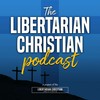

The Libertarian Christian Podcast
Libertarian Christian Institute
Join the Libertarian Christian Institute as each week they explore, debate, and analyze the issues that are directly relevant to the intersection of Christianity and liberty. Always thoughtful, frequently controversial, and never boring (trust us), it is our hope and prayer that The Libertarian Christian Podcast serve as a valuable resource to the Church for years to come.
If you'd like to reach out to us and ask a question or submit some feedback, you can reach us at podcast@libertarianchristians.com, as well as on Facebook, Twitter, and of course, our website, libertarianchristians.com.
If you'd like to reach out to us and ask a question or submit some feedback, you can reach us at podcast@libertarianchristians.com, as well as on Facebook, Twitter, and of course, our website, libertarianchristians.com.
Episodes
Mentioned books
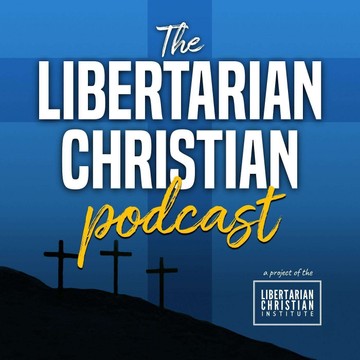
Jan 19, 2024 • 47min
Re-Issue: Ep 55: Social Justice and Libertarianism, with Jason Jewell
Concern for social justice has become one of the most effective ways for Christians to signal that they care about the world's poor, yet below the surface of this virtue signaling are some important issues about justice itself – of social well-being – and understanding how to be a Christian concerned with the common good. It is important to understand just how the message of the gospel applies to the well-being of the world. Jason Jewell joins us to talk about why a libertarian view of the state, society, and human action are critical concepts to understand before one arrives at a viable pursuit of social justice.(Re-Mastered for Re-Issue.)Audio Production by Podsworth Media - https://podsworth.com
★ Support this podcast ★
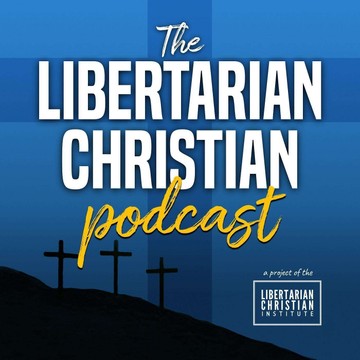
Jan 12, 2024 • 47min
Ep 360: How Cities Emerged as Centers of Progress, with Chelsea Follett
Chelsea Follett, author of Centers of Progress, 40 Cities That Changed the World, joins us to discuss the topic of human progress and how cities emerged as centers of progress for humanity. Chelsea's book takes listeners on an intellectual and historical tour of cities' golden ages, providing a fascinating exploration of the rise and fall of different cities, and their profound impact on progress and freedom. From lesser-known places to globally renowned metropolises, the conversation delves into the surprising innovations and achievements that have shaped our world. The discussion also uncovers the universal conditions for progress, challenging preconceived notions about the drivers of societal advancement. Through thought-provoking insights and engaging anecdotes, they shed light on the undeniable link between urbanization, autonomy, and the human experience. Join us as we embark on a journey through history, unraveling the intricate connection between cities, freedom, and progress, and uncovering the enduring influence of urban environments on the pursuit of prosperity and liberty. Chelsea Follett is the managing editor of HumanProgress.org, a project of the Cato Institute that seeks to educate the public on the global improvements in well‐being by providing free empirical data on long‐term developments. Additional Resources HumanProgress.org Centers of Progress Follow Chelsea on X Audio Production by Podsworth Media - https://podsworth.com
★ Support this podcast ★
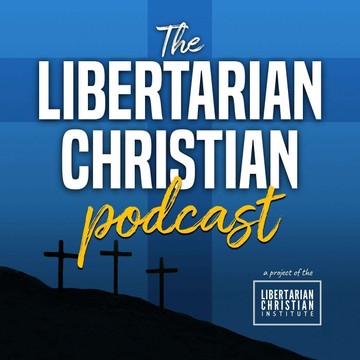
Jan 5, 2024 • 1h 2min
Re-Issue: Ep 15: Peter Enns on Biblical Interpretation, Trusting God, and a Life of Faith
On this episode, the always insightful (and frequently controversial) biblical scholar Dr. Peter Enns joins the show to talk to us about the journey of faith, trusting God, how to disagree with other Christians, pitfalls in biblical interpretation, and much more. Those familiar with Enns’ work typically have a strong opinion either for or against him. The listener is of course free to reach his or her own conclusions, though we will say that a number of us at the Libertarian Christian Institute — even those who strongly differ from Enns on some points — have greatly appreciated and benefited from his material over the years.Sooner or later, we all go through uncertain times in the Christian life. Who among us hasn’t felt scared, uncertain, or confused, and unable to voice our thoughts from fear of being made into a church pariah? One permeating theme of Enns’ work is that biblical faith is about trusting in God and moving forward even during these times; another is that being faithful to the Scripture requires us to come to it on its own terms, not ours. And all of this has tremendous relevance for how we relate to other believers in a way that honors Christ and unifies the Church, rather than furthers division.If you feel compelled to deconstruct this episode, please consider doing a grammatical-historical word study of the transcript first.(Re-Mastered for Re-Issue.)Audio Production by Podsworth Media - https://podsworth.com
★ Support this podcast ★
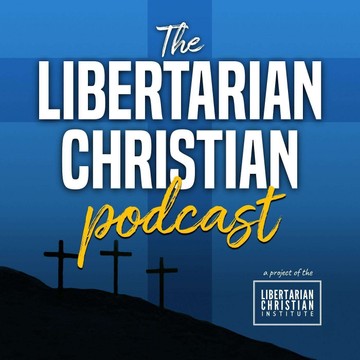
Dec 29, 2023 • 48min
Ep 359: Should Humans Settle Mars? with Kelly Weinersmith
This week's episode features Kelly Weinersmith, part of the wife-and-husband research team who are authors of A City on Mars: Can We Settle Space, Should We Settle Space, and Have We Really Thought this Through? In the episode Doug and Kelly discuss what common misconceptions are about traveling to the moon, Mars, and space settlement in general. Most people's visions of space are given to us by Hollywood or sci-fi writers, so we have an unrealistic picture of what actual Mars colonization would even look like, let alone function as a species. Kelly explains how she and her husband Zach went into the project with enthusiasm for settling space, but during the project came away with a much more realistic frame of reference for what it would take to get there. Kelly also explains how much we really don't understand, how little we have researched, and how ambitious getting to space in the next decade would actually be. Explored at the end are the legal norms and international treaties regarding space resources and land, and Kelly reveals her favorite sci-fi series. Additional Resources: Buy A City on Mars on Amazon Audio Production by Podsworth Media - https://podsworth.com
★ Support this podcast ★
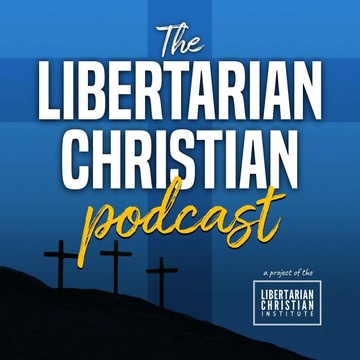
Dec 22, 2023 • 47min
Ep 358: Why it's Okay to Mind Your Own Business, with Brandon Warmke
Brandon Warmke joins us again to talk about his new book (with Justin Tosi), "Why It's Okay to Mind Your Own Business." Together, they delve into thought-provoking topics ranging from the societal pressure to make a big impact and change the world, to the importance of creating a good home and finding meaning in smaller, everyday activities. Brandon discusses the prevalence and attraction of Commencement Speech Morality and contrasts it with Ordinary Morality. The conversation also touches on the rise of online activism, the psychological need for recognition, the concept of "rootedness," and the defense of traditional roles and institutions. With engaging insights, book recommendations, this episode promises to challenge and inspire listeners to consider the value of minding their own business in today's culture dominated by moral talk and public activism. Additional Resources: Buy Why It's OK to Mind Your Own Business Audio Production by Podsworth Media - https://podsworth.com
★ Support this podcast ★
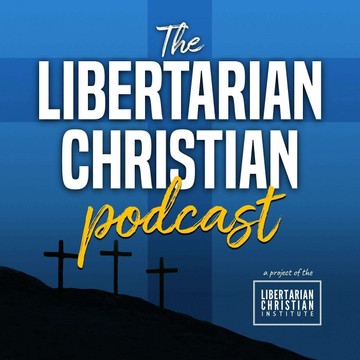
Dec 15, 2023 • 35min
Re-Issue: Ep 45: Christmas as Anti-Imperial Good News
Doug and Norman talk about the birth stories of Christ and how Matthew and Luke both use language and employ storytelling techniques that provide a clear anti-Roman and anti-empire story. This is good news for all because the message of liberation is not only about our personal liberation from the captivity of sin, but the cosmic liberation of captivity from slavery and oppression.(Re-Mastered for Re-Issue.)Audio Production by Podsworth Media - https://podsworth.com
★ Support this podcast ★
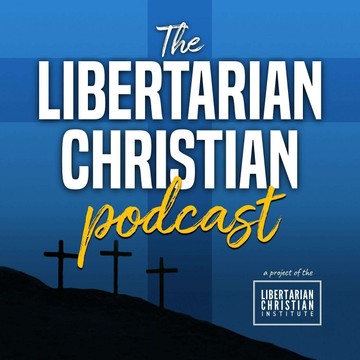
Dec 8, 2023 • 29min
Ep 357: Core Values of a Libertarian Christian
Doug Stuart discusses the enduring relevance of the five Core Values of a libertarian Christian. Doug delves into the first core value, emphasizing the role of Christian political philosophy in shaping a holistic view of scripture, reason, and historical theology. He scrutinizes the current political climate and the debate around Christian influence in politics, firmly highlighting the need to maintain the distinction between the kingdom of God and the state. He explores the importance of separating Christian values from nationalist ideologies, with an emphasis on the nonaggression principle and the compatibility of individual liberty with the common good. Doug provides a thought-provoking analysis of how Christian theology supports free market economics and values cooperation and service, encouraging listeners to engage further with these crucial topics in the libertarian Christian discourse. Additional Resources: Core Values Part 1 Core Values Part 2 Core Values Part 3 Core Values Part 4 Core Values Part 5 Core Values Part 6 Audio Production by Podsworth Media - https://podsworth.com
★ Support this podcast ★

Dec 1, 2023 • 45min
Re-Issue: Ep 153: The World is Getting Better, with Marian Tupy
Why do people think the world is getting worse, when the opposite is true? In today's episode, we have a fascinating conversation with Marian Tupy, the editor of humanprogress.org and a senior policy analyst at the Center for Global Liberty and Prosperity. Marian shares insights on the progress that has been made in various aspects of human development and the role that economic and political freedoms have played in this progress. From the decline in absolute poverty to advancements in medical science, Marian dispels common misconceptions and provides data-driven evidence of a better world. While not all indicators of human progress are excellent, as a species we are getting better, and we need to celebrate this.(Re-Mastered for Re-Issue.)Audio Production by Podsworth Media - https://podsworth.com
★ Support this podcast ★

Nov 24, 2023 • 53min
Re-Issue: Ep 228: The Contradictions of Politicized Christianity, with Lee Camp
Lee C. Camp is professor of Theology & Ethics at Lipscomb University in Nashville. He is the author of "Mere Discipleship: Radical Christianity in a Rebellious World" and "Scandalous Witness" and is co-author of "Resisting Babel". He is also the host of the Tokens Show, the world’s only long-running theological variety show.Lee joins Doug Stuart and Norman Horn to discuss the interplay of Christianity, politics, and culture in America, and in particular, the many contradictions therein for many Christians.(Re-Mastered for Re-Issue.)Audio Production by Podsworth Media - https://podsworth.com
★ Support this podcast ★

Nov 17, 2023 • 57min
Re-Issue: Ep 41: How to Have Meaningful Conversations, with Russ Roberts
It seems that people are no longer able to have a decent conversation with each other about politics or other controversial topics. Social media exacerbates our tribal tendencies and often we get entrenched in our own beliefs. It often takes the wisdom of one who has had years of experience talking to and discussing hot button topics. There’s no better person for to talk to about this than EconTalk host, Russ Roberts.Russ Roberts joins us for this episode to discuss what it takes to maintain a civil discussion during the holiday season (or any season!). With insight and wisdom from Adam Smith to his experience as host of EconTalk and a professor, Russ shares with us some very important things about life, both in the personal sphere and the social sphere.(Re-Mastered for Re-Issue.)Audio Production by Podsworth Media - https://podsworth.com
★ Support this podcast ★


